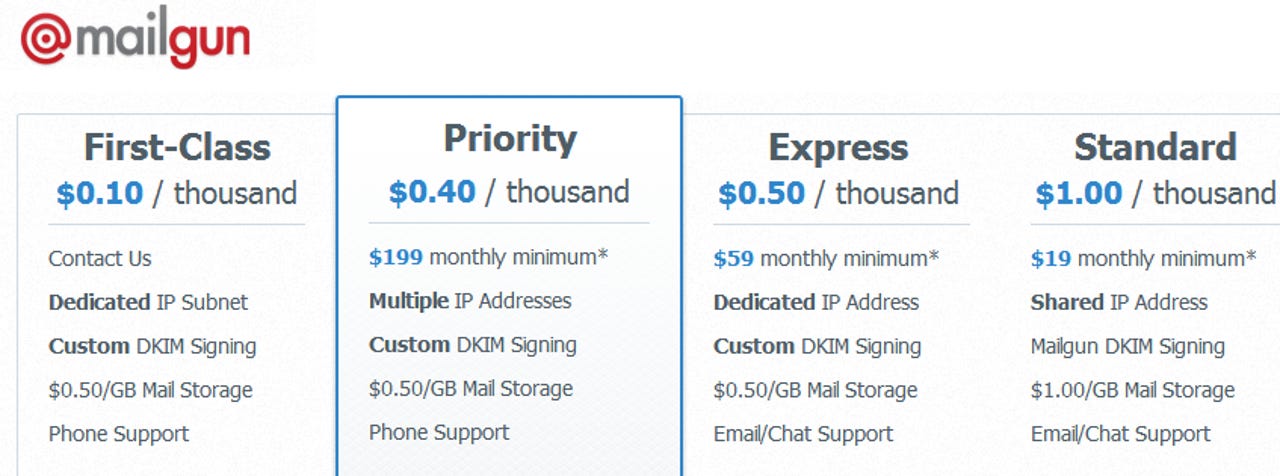Rackspace buys Mailgun, to add email services

Rackspace on Tuesday acquired Mailgun, a startup that focuses on email tracking.
Terms of the deal weren't disclosed. For Rackspace, the Mailgun deal is its 7th acquisition.
According to Rackspace, Mailgun, which has created APIs used to send email from within applications, will broaden its portfolio. Rackspace plans to allow customers to integrate cloud email services into applications and Web sites without an email server.
Mailgun is integrated into multiple platforms including Heroku, AppFog and EngineYard. A Y Combinator company, Mailgun and its six employees will remain in San Francisco.
Wells Fargo analyst Gray Powell said in a research note:
Though the acquisition is small Mailgun enables Rackspace to offer its customers the ability to integrate cloud-based email services into applications and websites within minutes which is a good value added service in our view. The product is known for its ease of use.
Here's a look at Mailgun's plans:

Most of Rackspace's acquisitions would fall into the tuck-in category. Among the company's key deals:
- Mailgun – August 2012
- Sharepoint 911 – February 2012
- Anso Labs – February 2012
- Cloudkick – December 2010
- JungleDisk – October 2008
- Slicehost – October 2008
- Webmail.us – June 2007
The upshot to all of these added features is that Rackspace is putting in the components to be an alternative to Amazon Web Services. VMware's likely move into OpenStack should cement Rackspace's role in public cloud services.
Patrick Walravens, an analyst at JMP Securities, raised Rackspace's target price and said:
If approved, VMware's membership in OpenStack will represent a major inflection point for Rackspace, in our opinion, as OpenStack was originally created by Rackspace and NASA as a way for Rackspace to try to keep up with the pace of innovation at VMware and Amazon Web Services, but now becomes the defacto alternative to AWS. The rapid evolution of OpenStack toward an industry standard benefits Rackspace because every workload running in an OpenStack environment represents a potential piece of business for Rackspace's fanatical support services. As a founder of OpenStack and the operator of the world's largest OpenStack powered public cloud, we believe Rackspace is perhaps uniquely qualified to compete for that business.